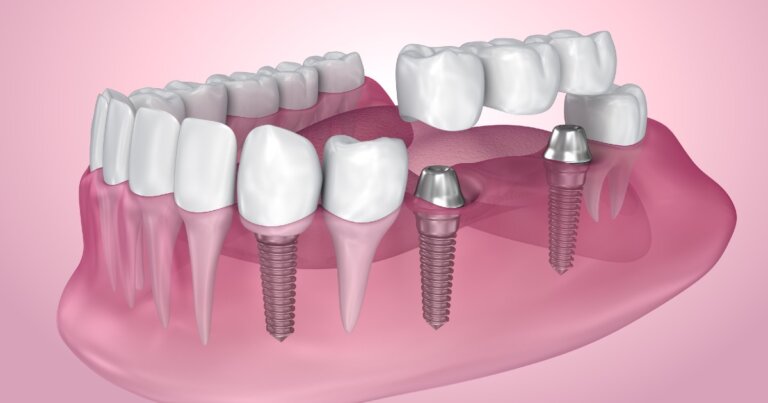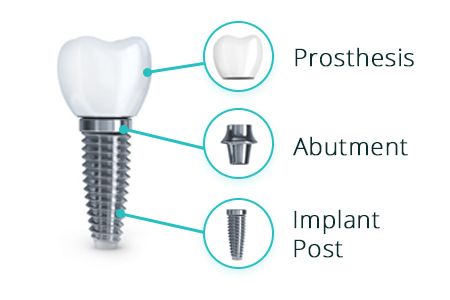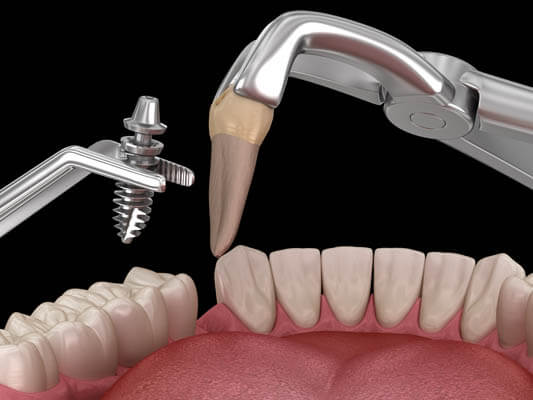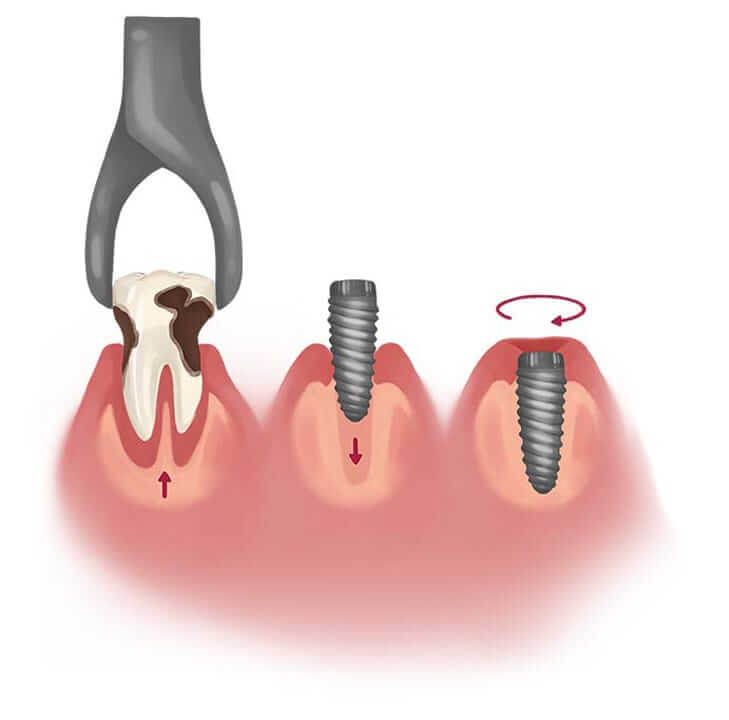Endosteal Dental Implant

What Is An Endosteal Dental Implant?
Endosteal dental implants provide a permanent, natural-feeling solution for tooth replacement, effectively restoring the appearance and functionality of missing teeth. Made from biocompatible materials such as titanium, these implants integrate with the jawbone through a process called osseointegration, ensuring a long-term, stable foundation for prosthetics like implant crowns, bridges, or dentures. Unlike traditional dentures that sit atop the gums, endosteal implants are securely embedded in the jaw, giving them durability and stability comparable to natural teeth.
Before deciding on whether Endosteal Dental Implant are right for you, there are some things you should know:
- Who Needs An Endosteal Dental Implant?
- Benefits of Endosteal Dental Implants
- What Are The Alternative Treatments To Endosteal Dental Implant?
- How Much Do Endosteal Dental Implants Cost?
- Steps In The Endosteal Dental Implant Procedure
- Frequently Asked Questions About Endosteal Dental Implants
If you have any further questions about Endosteal Dental Implant or other dental services offered at Atlas Dental, please contact us.

Free phone consultation
Have questions about Endosteal Implants? Schedule a free phone consultation with our Toronto dentist.

5 star google reviews
Our patients love us! See for yourself why people are choosing Atlas Dental in Toronto for Endosteal Implants.

Dental Implant Crown Emergency Service
Are you having trouble with your Endosteal Implant? Book an emergency appointment today.
Who Needs An Endosteal Dental Implant?
Endosteal implants are an ideal solution for individuals facing tooth loss, providing a robust foundation for dental restoration. Consider endosteal implants if you:
- Have Missing Teeth: Whether due to decay, trauma, or gum disease, endosteal implants offer a natural-looking solution for replacing one or more missing teeth.
- Struggle with Unstable Dentures: If removable dentures slip or cause discomfort, implant-supported dentures provide a secure, stable fit.
- Experience Jawbone Loss: For those with diminishing bone density, endosteal implants offer stability by integrating deeply into the jawbone, stimulating bone health.
- Desire a Permanent Solution: Unlike temporary bridges or removable dentures, endosteal implants are a long-lasting alternative.
- Seek Better Oral Health: Implants help maintain proper alignment of teeth, reducing the risk of gum disease and adjacent tooth shifting.
Consulting with a qualified dental professional can help determine if endosteal implants are the right choice for your specific needs. If you have further questions about Endosteal Dental Implant, please contact us.

Benefits of Endosteal Dental Implants
Here are some of the key advantages of endosteal dental implants:
- Natural Look and Functionality: Mimics the appearance and function of real teeth, providing a seamless, aesthetically pleasing smile.
- Durability: With proper care, endosteal implants can last a lifetime, making them a cost-effective, permanent solution.
- Jawbone Preservation: By integrating into the jaw, endosteal implants stimulate bone health, preventing bone loss associated with tooth loss.
- Enhanced Comfort and Stability: Avoids the common slippage and discomfort of removable dentures, allowing for easier chewing and speech.
- No Impact on Adjacent Teeth: Unlike bridges, implants don’t require altering healthy teeth, preserving their natural structure.
For a full evaluation to determine if endosteal implants are right for you, consult your dentist to discuss the advantages and suitability of this implant option. If you have further questions about Endosteal Dental Implant, please contact us.
What Are The Alternative Treatments to Endosteal Dental Implant?
If endosteal implants aren’t suitable, there are alternative treatments available:
- Traditional Bridges: These bridge the gap for missing teeth by anchoring to adjacent teeth, although they may affect surrounding tooth structure.
- Removable Dentures: A cost-effective option for multiple missing teeth, though less secure than implants.
- Resin-Bonded Bridges: A minimally invasive alternative that doesn’t alter adjacent teeth, ideal for front teeth replacement.
- Flipper Dentures: A temporary, partial denture used during the healing period or when implants aren’t viable.
Before deciding on a tooth replacement option, it’s essential to discuss your concerns, preferences, and treatment goals with your dentist. If you have further questions about Endosteal Dental Implant, please contact us.

Cost of Dental Implants
A cost of a basic Dental Implant can start from $4165, which includes the dental implant surgical placement, and the dental implant crown, plus any applicable material expense and dental lab fees. Zirconia (ceramic) dental implants cost slightly more. The codes relevant to dental implants in the Ontario Dental Association’s Suggested Fee Guide appear as follows:
Implants, Osseointegrated, Root Form, More than one component
- 79931 – Surgical Installation of Implant with Cover Screw – per implant: $1785+ Dental Materials Expense (approximately $350; for zirconia (ceramic) implants is approximately $450)
Crowns, Porcelain/Ceramic/Polymer Glass Fused to Metal
- 27215 – Crown, Porcelain/Ceramic/Polymer Glass Fused to Metal Base, Implant-Supported: $1280 + Dental Lab Fee + Dental Materials Expense (approximately $650-800)
Depending on your unique circumstance, implant surgery may be more expensive if any of the following is required:
- Tooth removal
- CBCT scanning
- Computer guided implant surgery
- Bone grafting
- Gum grafting
- Indirect sinus lifting
- Lateral window sinus lifting
Dental Implant services are usually considered a supplementary service by dental insurance plans and may or may not be covered by your dental insurance. Be sure to find out from your dental insurance plan provider how much you are eligible for before going ahead with dental treatment. Your dentist can help you submit an predetermination to your dental insurance.
For patients without dental insurance, Atlas Dental is pleased to offer dental financing through iFinance Dentalcard. Affordable payment plans start at 7.95% for terms of 6 months to 6 years. To learn more about Dentalcard dental treatment financing, follow this link.
Steps In The Endosteal Dental Implant Procedure
Understanding each phase of the implant process helps prepare you for a smooth experience:
- Consultation and Examination: A comprehensive oral examination and diagnostic imaging such as CBCT scans can help determine implant suitability and ensure optimal positioning.
- Treatment Planning: A personalized plan is created based on your specific dental needs, including any necessary preparatory procedures, such as bone grafting.
- Tooth Extraction (If Needed): Damaged teeth may be removed before implant placement, with some cases allowing immediate implant placement post-extraction.
- Implant Placement Surgery: The implant is surgically placed in the jawbone under local anesthesia. Osseointegration follows, allowing the implant to fuse with the bone over several months.
- Abutment Placement: Once the implant has integrated, abutments are placed to support prosthetic teeth.
- Prosthetic Tooth Placement: Crowns, bridges, or dentures are securely attached to the abutments, completing the restoration.
- Maintenance and Follow-up: Routine check-ups and diligent oral hygiene practices ensure the longevity and health of your implants.
By following these steps and working closely with your dental team, you can achieve a restored smile and optimal oral function with endosteal dental implants. If you have further questions about Endosteal Dental Implant, please contact us.

Frequently Asked Questions About Endosteal Dental Implants
- What is the success rate of endosteal implants?
With proper care, endosteal implants have a high success rate, often exceeding 95%.
- How long do endosteal dental implants last?
With proper care, endosteal implants can last 20 years or more, making them a durable and long-lasting solution for tooth replacement.
- Is the procedure painful?
The implant placement procedure is performed under local anesthesia, minimizing discomfort. Mild soreness or swelling after the surgery is normal and can be managed with prescribed pain relievers.
- Are endosteal implants covered by insurance?
Coverage varies depending on the insurance provider and policy. Some plans may cover part of the procedure, especially if it’s deemed medically necessary.
Endosteal dental implants are a reliable and durable solution for replacing missing teeth, offering both functional and aesthetic benefits. If you have further questions about Endosteal Dental Implant, please contact us.

